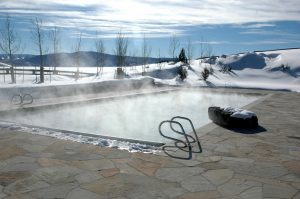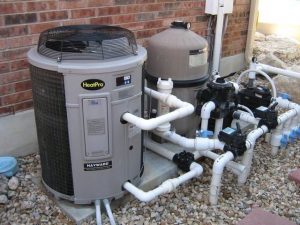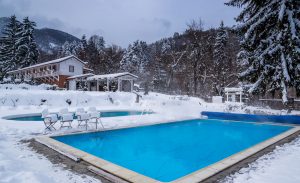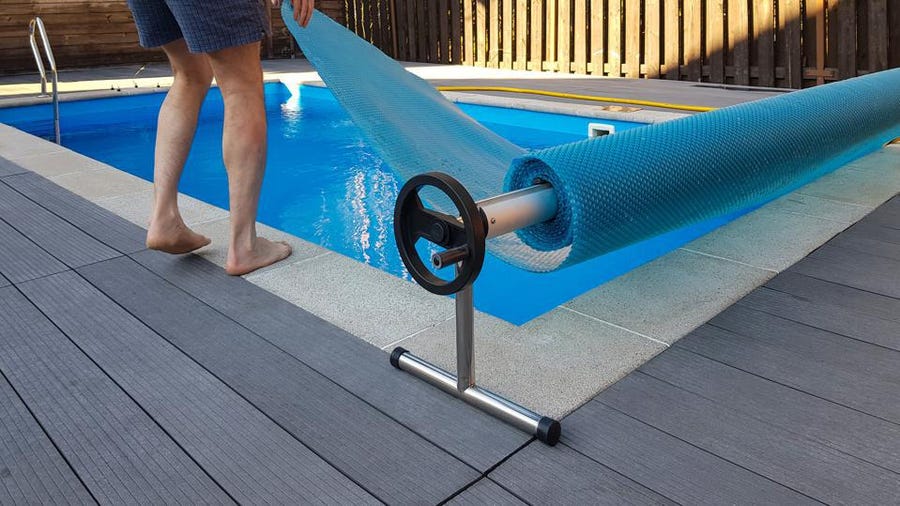Your pool uses a lot of work and time to be up and running for the season, but now that it’s autumn, you know winter is coming. When Preparing Your Swimming Pool for Winter, you want to make sure your pool is ready for when it rains, snows, or just gets too cold outside. It will take some preparation on your part if you want the water to be clean enough for swimming well into winter.
Before the cold, you want to prepare the pool for winter by doing a few things. You need to take care of some of the routine maintenance that needs to be done. Additional, you need to do a little preventative maintenance which covers some important things that can be a headache during a cold winter’s season.
Most people don’t want to swim during winter, and many pools close for the season. It’s understandable; pools are expensive to maintain and it can be difficult to keep them open. However, taking a few precautions now will help you enjoy your pool next summer:
One of the most obvious things that have to be done is adding some chemicals into your pool while it’s still warm outside. It is recommended to add the algae preventative immediately. This is really important because if your pool gets too much algae, it can easily take over your pool, which you will have to drain and start over with. Then you should add some clarifiers or flocculants to help clean out any sediment that’s built up in the water.
Then you want to make sure your chlorine level is between 3 to 5 ppm. If it’s too high than you want to add some acid or if it’s too low then add some chlorine. You also want to make sure your pH is where it needs to be, which is between 7.2 and 7.6. If it’s not you want to add a little bit of muriatic acid or a little bit of sodium bisulfite, depending on if it’s a high pH or a low pH.
You should also want to test your pH depending on what type of chemicals you’re adding. If you’re using a pool shock, you can test once a week. If you were testing it every day and the pH was getting too low because the algae were growing, then you may need to give some chlorine or acid.
Finally, if you want to make sure the water stays clear and clean throughout winter, I recommend adding algaecide once a week for all of your winter maintenance. You can also add some type of clarifier because it will help with the clarity of the water.

Once your pool is all set up, you can get to thinking about winterizing your pool. If you’re not sure what to do, here’s a few tips about winterizing your pool. The first thing you want to do is use a leaf skimmer or a net to remove all of the leaves and debris from the water. This will help to prevent any algae from growing after you have your water balanced.
You should also put some chlorine into the pool because it will help to prevent algae growth. If you’re using a smaller pool, you can get away with adding 2 bags of shock at 4 lbs., otherwise make sure you use the amount specified on the package.
You want to make sure your water is circulating properly. If you can see any leaves or debris in the water, then you should vacuum it out. Then, make sure the pump is working properly, make sure the filter is clear from any leaves and debris.
If you want to add some winter chemicals, then use caution because some of them aren’t recommended for use during a cold season. As a whole, I would hope that none of these chemicals go into your pool because it could get too toxic and kill your fish. However, if you’re trying to keep your pool clear and happy, then you could use algaecide every 6 days. If you want to help prevent any algae growth, since it’s not recommended to use an algaecide during the winter months, then you could use a copper or soda ash treatment.
- Keep the pool pump running: With any luck, your pump will be able to help push water through all the pipes. And even if the pump isn’t running, it should keep your pool clean and clear of debris.
- Wash down the walls: Cleaning the walls before winter will help protect them during winter. A quick power wash can also remove debris that has gathered on them during summer.
- Check the safety precautions: If you purchased a new safety cover this year, make sure it is in good working order and ready to use during winter.
- Join a community: If your pool is nearby to a nearby indoor pool, you can often get an hour or two of free swimming during winter.
- Set up automatic systems: Many pools have some sort of automatic system that will keep the water clean and clear enough for swimming even if the pumps aren’t running.
- Use chlorine tablets: A dose of chlorine once a week will help prevent the formation of bacteria that can cause scum on the pool walls and pipes.
- Put a liner in: While it’s not necessary to have a liner down during the winter, it will help keep the dirt out of your pool.
- Pump more frequently: While this isn’t difficult during the winter, make sure you are pumping enough water through your filters more frequently to keep them clean.
- Keep an eye on the weather: If you don’t want to wait for spring, keep an eye out for any chances of rain or snow. If any winter precipitation occurs, take precautions now.

Preparing Your Swimming Pool for Winter and the air is getting colder and leaves are changing colours, which means it’s time to prepare your pool for winter. If you want to enjoy a swim in your pool all winter long, there are a few things you should do now. Here are some tips about how to maintain your pool during the cold months.
1) Clean filters and pipes: In order to keep the water crystal clear, clean filter grids and pipes with a filter cleaner or use bleach water. This will remove any algae from the filters so they can work effectively without clogging up. You’ll need a vacuum or pump to pull water through all the pipes so they don’t ice over during cold weather.
2) Get a pool cover: A solar cover will keep the water clear all winter, and it’s easy to maintain and ensure it is in good working order. It needs to fit properly and be fit snugly to prevent snow or ice from entering the cover .
3) Pool Heater: In the winter, it is nice to keep the pool warm so the water stays warmer too. You can turn on your pool heater when you get in to have a nice swim without feeling cold.
Once you are done swimming, one other important thing to do is turning your heater off. This will help prevent any freeze damage that could happen when the weather starts getting cooler. You want to leave the heater running for about 10 minutes at night so that the water is warm enough to not freeze. However, you don’t have to have it on 24/7. It can be turned off during days when you know it will be colder outside. This is something that you should do every year, but it’s even more important now since your heater could ruin your pool if it freezes up.

4) Salt the water: Saltwater has a harder time freezing, which prevents ice from forming on your walls and floor if there still is salt left over from last year. Just sprinkle about 2 lbs of table salt into each 1000 gallons of water and then stir or shake up the pool.
One of the most common questions we get asked at is: “How long will a pool heater last?” It’s a good question, and we hope we can give you an accurate answer. If you’re considering buying a new heater for your pool, then it’s worth considering what reasons you’ll be using the heater, and what features really matter most to you.
It’s hard to tell how long a pool heater will last based on the initial cost of the unit; with most products costing more at the start than they do after repeated use and repairs over time. For example, if you spend $500 on a new filter pump for your pool and it lasts five years before major repairs are needed, then it would seem like a great deal. However, if you keep the same pool filter running for 10 years and it only lasts five before major repairs are needed, then you would be disappointed with such a purchase. Not to mention that repairing a pool filter is not cheap; for that reason we suggest spending the extra money upfront and getting a unit that will last long enough to allow you to get your money back at the end.
When thinking about this topic on Preparing Your Swimming Pool for Winter, we want you to focus on how long and how much use each unit will get over its lifetime; where we’ve seen things like pool pumps make up less than 50 percent of overall repair work costs in many cases.

You can find lots of information about Preparing Your Swimming Pool for Winter your pool on the internet, but if you want to use something that’s proven to work then I recommend getting a pool blanket. The most important thing you need is to make sure your heater isn’t going to freeze up. If it does, then it can be a huge headache for you in the spring when it freezes up and breaks.
In addition to making sure your heater is protected from the cold, you need a pool blanket to protect the water from freezing. This will keep it clean and ready for you to swim in when the weather gets warmer. The extra benefit is that you can insulate the water to help prevent it from being so cold. An insulated pool blanket will help to hold in all of the heat, which is perfect if you have a larger pool or an outdoor pool.
If you’re wondering if Preparing Your Swimming Pool for Winter is something worth investing in, I would say yes because it’s cheap and easy to use. They can be a little pricey, but many people will tell you that it’s well worth the money to protect your pool from freezing.

If you have any other tips or suggestions for considering purchasing a pool, please comment on this article and be sure to share and contact us at 1-778-899-9175 for an appointment .
